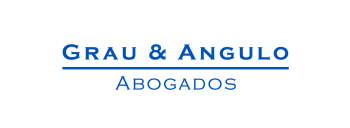On February 23 2018 the Barcelona Court of Appeal dismissed the writ of appeal filed by an online seller of counterfeit shoes against a condemnatory judgment issued by Barcelona Trial Court Number 9 on October 27 2017, confirming the judgment in its entirety. Barcelona Trial Court Number 9 had sentenced the online seller for committing a crime against the industrial property rights set out in Article 274 of the Criminal Code.
From 2009 to 2012 the defendant posted counterfeit shoes for sale on his Facebook account. Customers sent the defendant private messages to place orders and he subsequently provided them with his bank account details for payment, instructing them not to refer to the Facebook account where the counterfeit products had been offered for sale.
The defendant, in turn, purchased the shoes from a Portuguese website and later provided them to his customers on demand.
The defendant alleged that he had been unaware of the counterfeit nature of the shoes and had believed that he was purchasing genuine products from the Portuguese website. The alleged absence of the subjective element of the criminal offence (ie, criminal intent) was the main debate during the trial hearing. The trial court considered that the well-known nature of the counterfeit trademarks was so obvious that the defendant must have been aware of the counterfeit nature of the goods that he was purchasing.
This argument was backed by the Barcelona Court of Appeal, which stressed, as a determining factor, the fact that both the acquisition and sale prices had been much lower than usual. As such, the appeal court held that the defendant must have been fully aware of the price of the genuine shoes.
Both Barcelona Trial Court Number 9 and the Barcelona Court of Appeal considered that the defendant had:
- adopted preventive provisions for his online activity to go undetected; and
- known that the trademark was an indication of the existence of criminal intent.
The trial court ordered the payment of damages, including:
- the costs of the private detective hired by the private prosecutor to uncover the identity of the person behind the Facebook account; and
- the amount that the offender should have paid to the trademark owner for a licence that would have legally allowed him to use the mark.
Notably, the trial court applied the damages criteria provided for in Article 43.2.b of the Trademark Act as opposed to that provided for in Article 43.2.a, which is more commonly applied in criminal cases and consists of the profits which a trademark owner would have made had a counterfeiting offence not occurred.
The application of Article 43.2.b had clear economic repercussions for the trademark owner in this case, as a reduced number of pairs of shoes were seized. As such, the licence criterion was more appropriate with regard to damages caused by the continued distribution of counterfeit shoes, which were the object of the proceedings.
The trial court accepted the private prosecutor's request in this regard, considering that the defendant had, through his Facebook account, behaved as if he were a de facto licensee of the trademark holder's products.
For further information on this topic please contact David Daura at Grau & Angulo by telephone (+34 93 2023456) or email ([email protected]). The Grau & Angulo website can be accessed at www.ga-ip.com.
This article was first published by the International Law Office, a premium online legal update service for major companies and law firms worldwide. Register for a free subscription.



